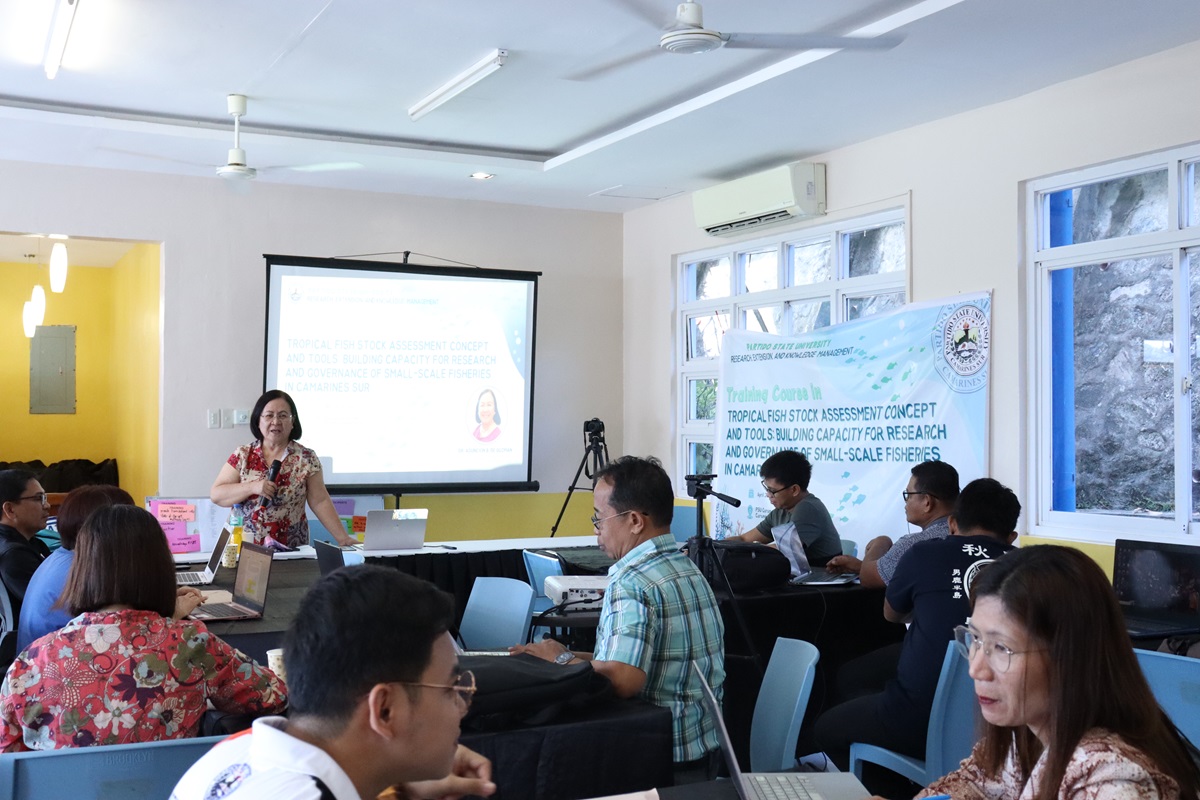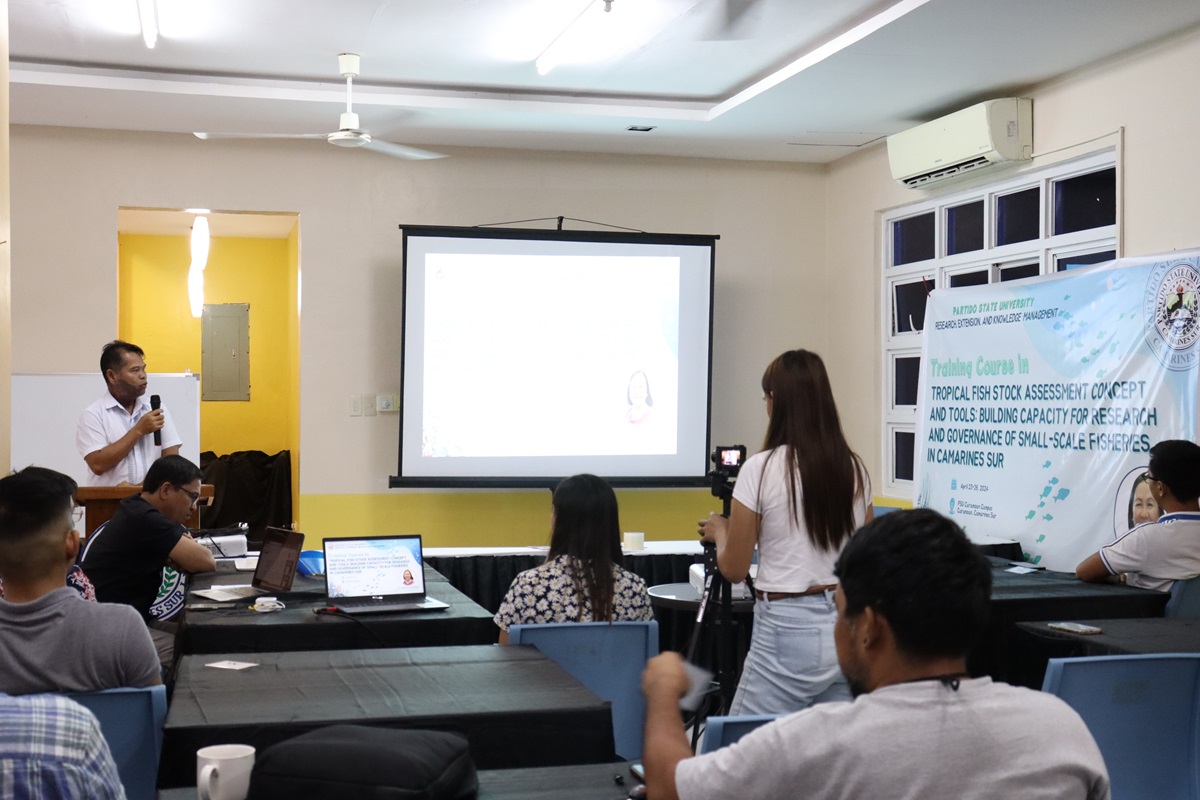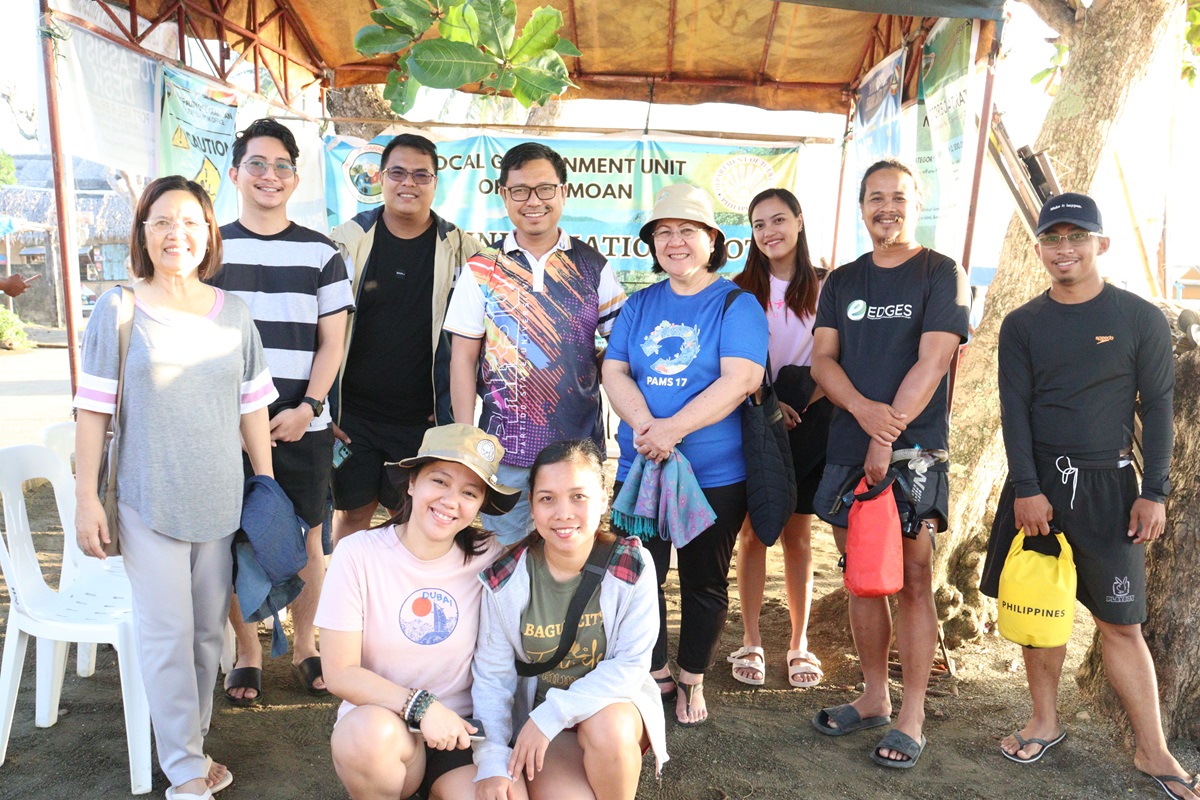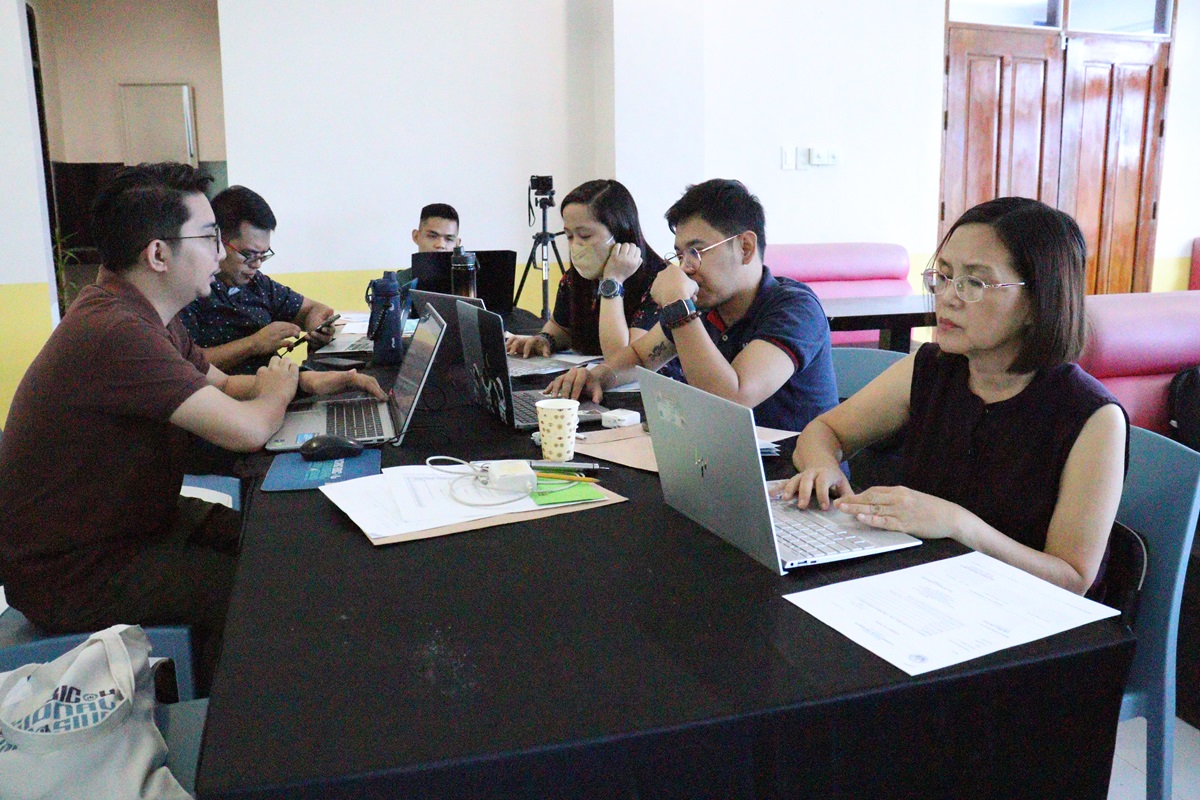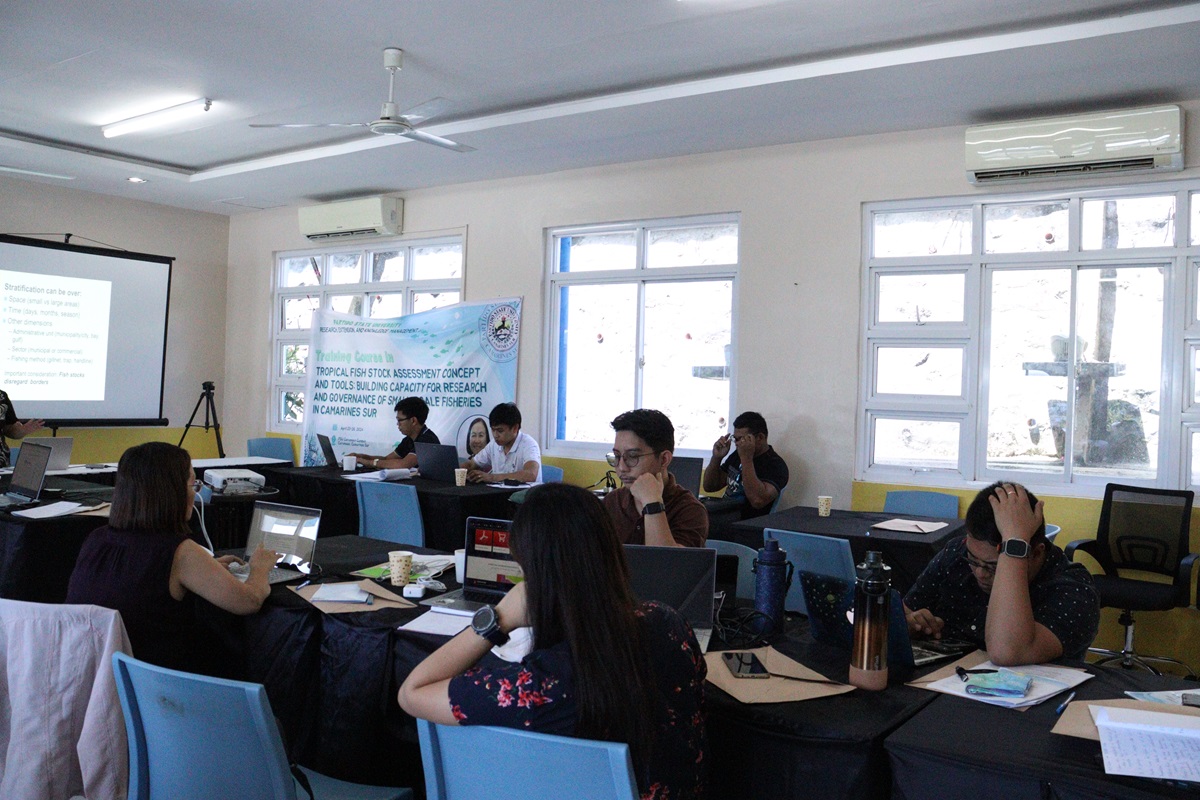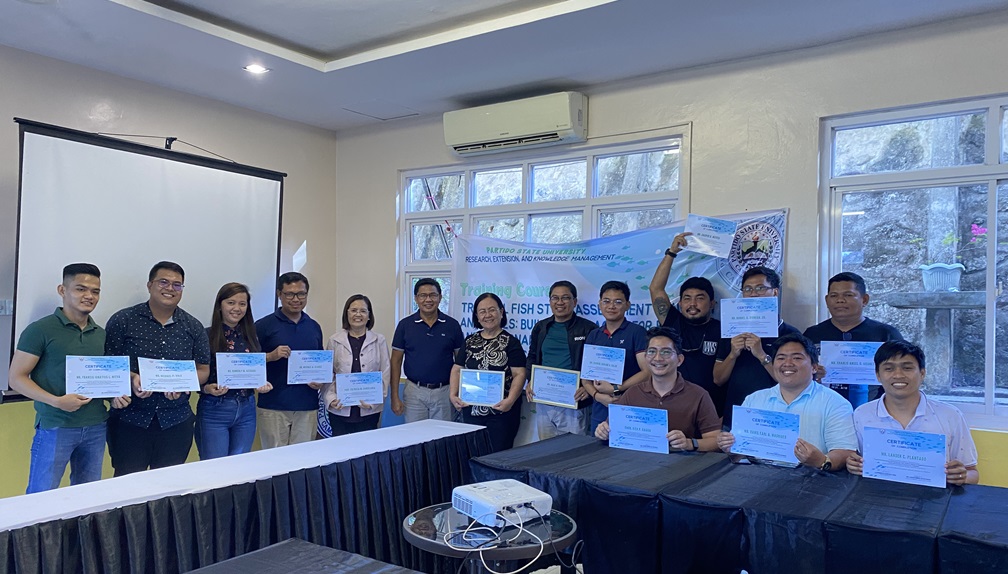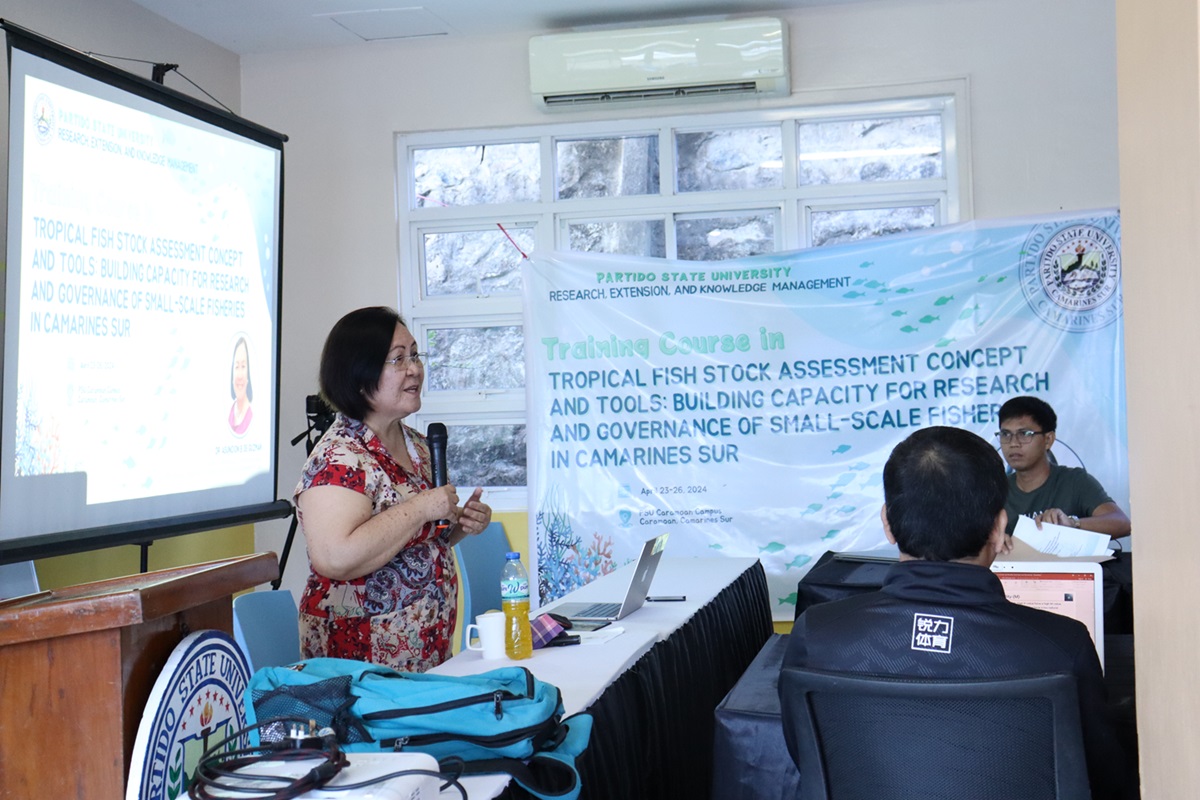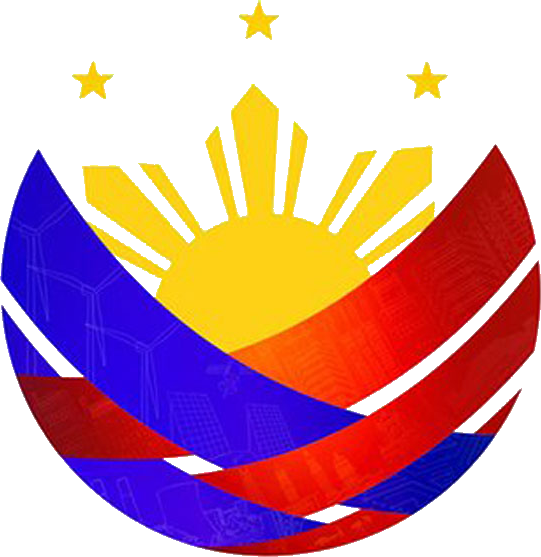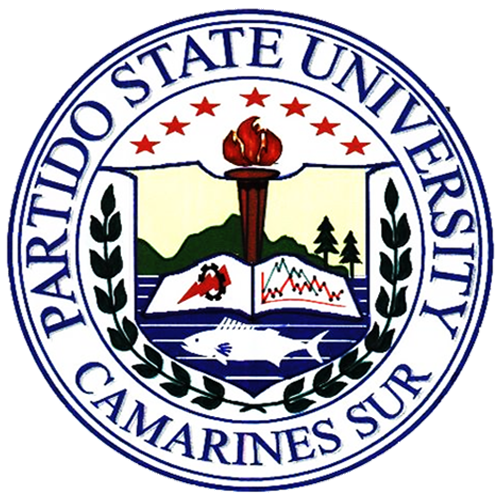With a goal to empower faculty researchers in sustainable fisheries management, the Partido State University's Research, Extension, and Knowledge Management division sponsored the conduct of the advanced training course “Tropical Fish Stock Assessment Concepts and Tools: Building Capacity for Research and Governance of Small-scale fisheries in Camarines Sur, Philippines” held last April 23-26 at the Partido State University Caramoan Campus. The training was attended by select faculty-researchers from the university immersed in fisheries-related researches.
Engaging with Real-World Challenges
The participants delved into the complex landscape of small-scale capture fisheries as the speaker, Dr. Asuncion B. De Guzman, a renowned fisheries scientist from the Mindanao State University Naawan Foundation for Science and Technology Development, Inc. (MSUNFSTDI) discussed the state of Philippine small-scale fisheries and the intricate balance between exploitation and conservation. Her discussions revealed that beyond the science, effective fisheries management requires an understanding of socio-economic factors and the resilience of fishery systems to climate change.
To bring theory into practice, the participants were trained in methodologies to measure fish lengths and calculate weight relationships. Simulations like the "Tragedy of the Commons" fishing game was conducted to highlight the delicate equilibrium necessary in managing common resources. The participants later on concluded that overfishing and resource depletion are not just theoretical threats but real challenges that require cooperative solutions.
Advanced Techniques and Practical Applications
Aside from the discussions and interactive activities, the participants were also exposed to advanced fish stock assessment tools. Using the FiSAT II software, the participants estimated growth, mortality, and recruitment patterns in simulated fishing areas in the country using real-world data.
“These technical skills are crucial for developing accurate stock assessments and implementing effective management strategies.” said Mr. Michael P. Vale, the university Gender and Development Focal Person and one of the participants to the event.
Connecting Research to Governance
Dr. Raul G. Bradecina, the former university president and university professor of ParSU also led sessions on species identification and the biodiversity status of commercial fish stocks, connecting scientific research with practical governance needs. This has allowed the participants to develop fish stock assessment project frameworks, which they presented and critiqued collaboratively.
“This exercise demonstrated the critical link between research and governance, showing that data-driven policies are essential for effective fisheries management.” said Ms. Kimberly M. Aserado, one of the participants to the event.
Insights for the Future
With the fish stock assessment framework developed and plans for future fish stock assessment researches to be conducted as presented during the culmination, it is expected that future researches on governance of small-scale fisheries in the province of Camarines Sur spearheaded by the participants is underway.
“The training emphasized that sustainable fisheries management is not just a scientific endeavor but a collaborative effort that requires the engagement of local communities, policymakers, and researchers. The collective commitment shown during the course reflects a broader movement towards sustainable development and the protection of vital marine ecosystems.” said Prof. Patricia M. Candelaria, the Vice President for Research, Extension and Knowledge Management.
“The insights gained in the training extend beyond the classroom and into the broader context of environmental stewardship and sustainable development. By equipping local researchers and managers with the tools and knowledge necessary for effective fish stock assessment, Partido State University has laid the groundwork for a more sustainable future for small-scale fisheries in Camarines Sur” she added.
Aside from Dr. De Guzman and Dr. Bradecina, the other experts from the university who are discussants in the event are Mr. Raul B. Burce and Mr. Ronnel A. Dioneda. They have discussed climate change effects and vulnerability and reproductive biology of tropical fishes respectively.
The activity was also attended by university officials including the university President, Dr. Arnel B. Zarcedo, the university Vice President for Administration and Finance, Prof. Charlie V. Balagtas and the university Vice President for Academic Affairs, Dr. Michael A. Clores.
